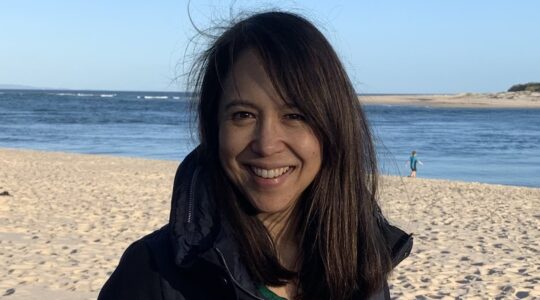Regular users of SPF50+ sunscreen are being urged to take vitamin D supplements following a landmark study led by Brisbane’s QIMR Berghofer.
Professor Rachel Neale, the lead investigator of the Sun-D Trial, said the new research found that people who used SPF50+ sunscreen daily for about a year were more likely to be vitamin D deficient than those who used it less frequently.
Professor Neale said researchers were emphatic that this did not mean people should stop using sunscreen.
“Sunscreen remains a cornerstone of skin cancer prevention, backed by decades of robust evidence,” she said.
“Our findings simply suggest that people who are diligent about daily sunscreen use may want to consider vitamin D supplementation as a safe, effective and cheap way to maintain healthy vitamin D levels.”
Professor Neale said QIMR Berghofer had been at the forefront of public health research in Australia, shaping national policy and public awareness around sun protection, skin cancer prevention, and sunscreen use, with early studies helping to establish the link between UV exposure and melanoma and evidence-based recommendations made that underpinned today’s sun safety guidelines.
“QIMR Berghofer remains committed to advancing public health through rigorous peer reviewed research, and this study reinforces the importance of balanced, evidence-based guidance in protecting Australians from both skin cancer and vitamin D deficiency.”
Professor Neale said the study involved 639 participants who were not regular sunscreen users.
She said half were instructed to apply SPF50+ sunscreen daily for a year (excluding winter in southern regions), while the other half served as a control group.
“After 12 months, 46 percent of the sunscreen group were vitamin D deficient, compared to 37 percent in the control group.”
Professor Neale said vitamin D played a role in bone health, immune function, and may influence other health outcomes, but unlike UV exposure, which increased skin cancer risk, vitamin D deficiency could be safely addressed through diet and supplements.
“There’s no evidence that sun exposure is more effective than supplementation for maintaining vitamin D,” she said, noting there may be other benefits to sunlight exposure.
“Given the risks of skin cancer, especially in Australia, we strongly advise people not to change their sunscreen habits.”
QIMR Berghofer recommendations:
- Continue using SPF50+ sunscreen daily when the UV index is forecast to reach at least 3.
- Consider vitamin D supplements if you consistently use sunscreen as part of your usual daily routine.
- Remember: sun protection saves lives, and sunscreen is a proven tool in reducing melanoma risk.
Read the full study: The effect of daily sunscreen application on vitamin D: findings from the open-label, randomised, controlled Sun-D Trial.








